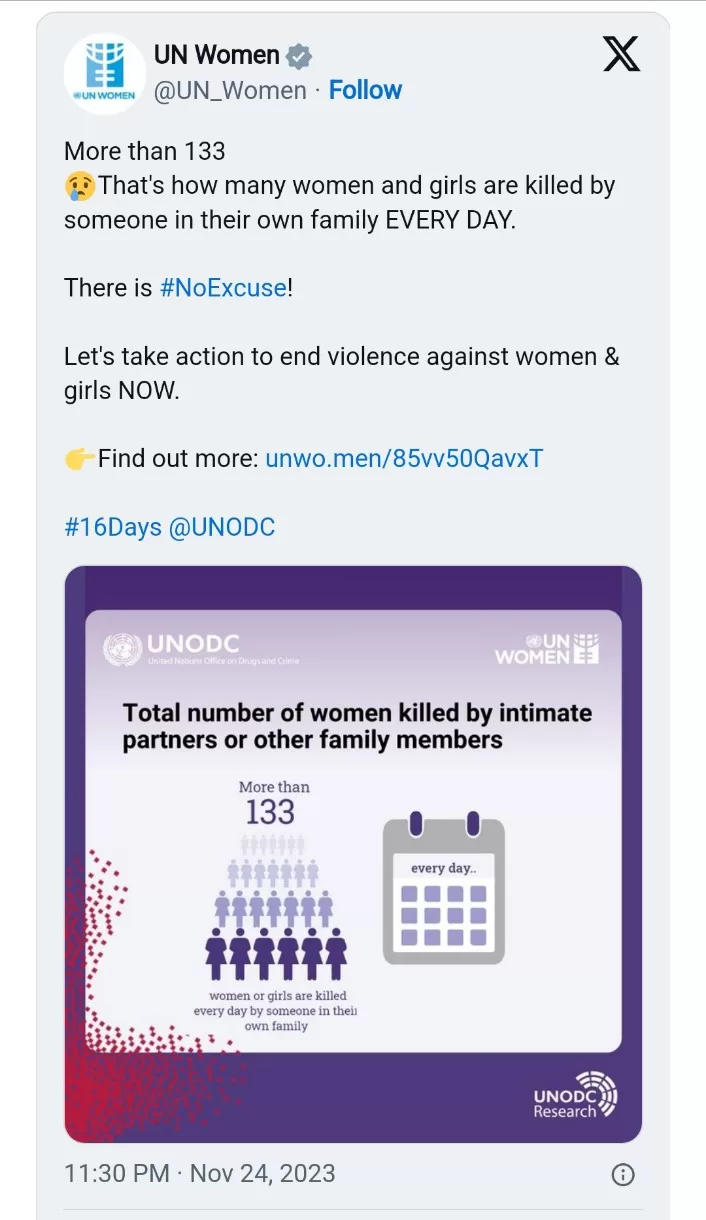In a newly released research brief, two UN agencies reveal a disturbing trend in gender-related killings, reporting that nearly 89,000 women and girls were intentionally killed in 2022—marking the highest yearly number recorded in the past two decades. Contrary to expectations, the data indicates that the number of female homicides is not decreasing.
– 55% of intentional killings of women in 2022 were committed by intimate partners or family members.
– On average, more than 133 women or girls were killed every day by someone within their own family.
The report precedes the International Day for the Elimination of Violence against Women, observed this Saturday. UN Women, dedicated to gender equality and women’s empowerment, calls for bold investments to end violence against women.
Another report by UN Women highlights the severe underfunding in preventing violence against women. In 2022, despite global spending of $204 billion in overseas development assistance, only one-fifth of one percent was allocated to preventing gender-based violence (GBV).
– Only 0.2% of global aid and development funding addresses gender-based violence.
– Over the five-year period (2018-2023), donors invested an average of approximately $410 million per year in GBV prevention.
Comparatively, the report reveals that prevention of GBV sits low on the list of priorities for donors. In 2021 alone, substantial amounts were spent on health, education, social protection, and environment protection, leaving GBV prevention in the shadows.
The release of these reports coincides with the commencement of the 16 Days of Activism against Gender-Based Violence, running from November 25 to December 10. The global theme, set by the UN Secretary-General’s UNiTE campaign, emphasizes the urgent need to “UNITE! Invest to prevent violence against women and girls.”
UN Women’s Gender Snapshot 2023 report further underscores the prevalence of violence, revealing that 245 million women and girls face physical and/or sexual violence from intimate partners annually. Shockingly, 86% of women and girls live in countries lacking robust legal protections against violence or where data is unavailable.
The report emphasizes that economic crises, conflicts, and climate change exacerbate the vulnerability of women and girls to violence.
UN Women Executive Director Sima Bahous states, “It is time to get serious and fund what we know works to stop violence against women and girls.”







